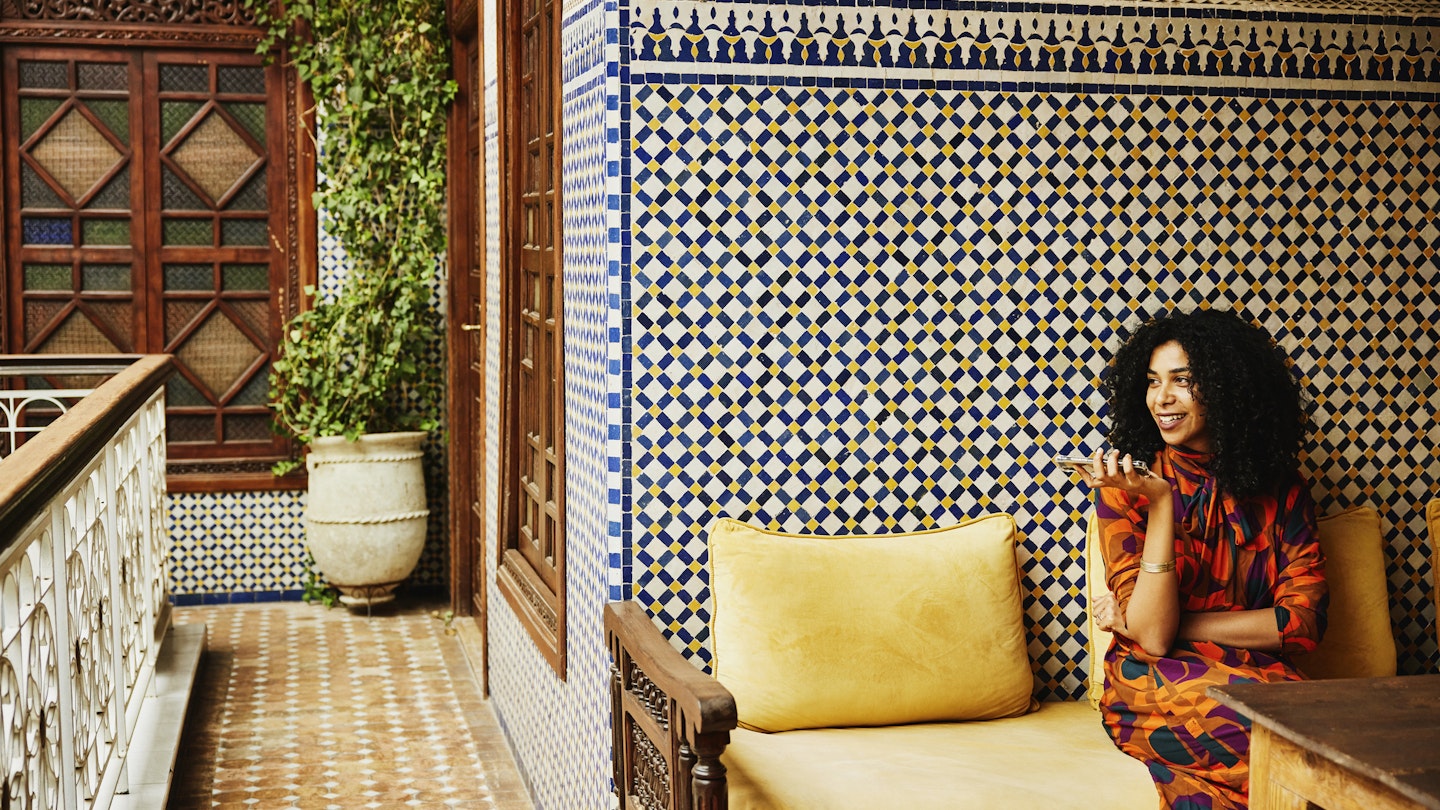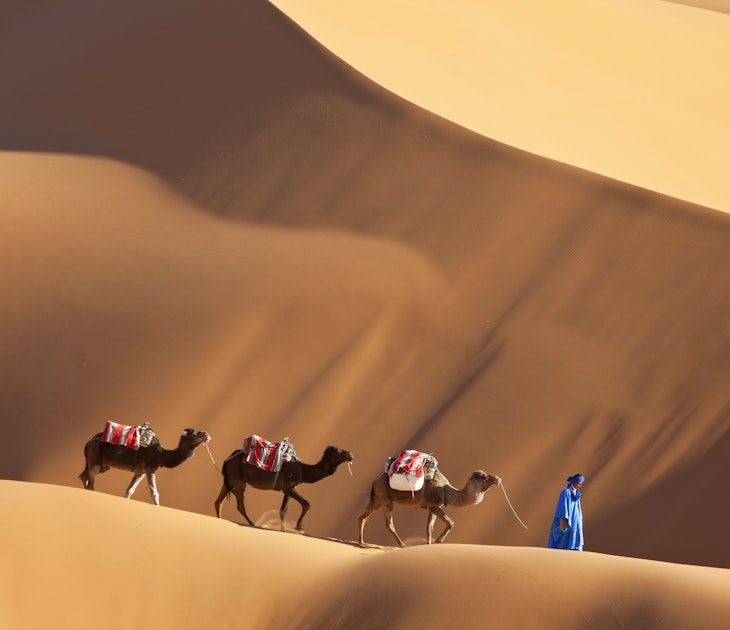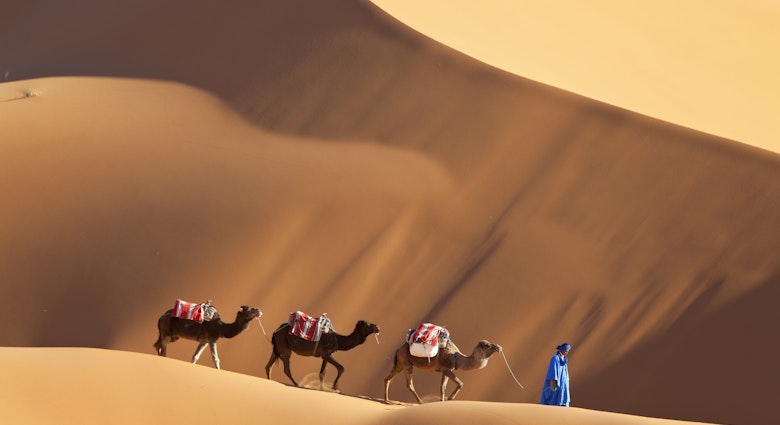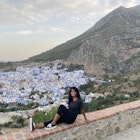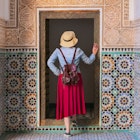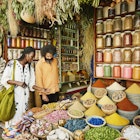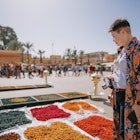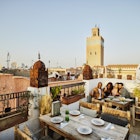I am originally from the UK and have been living in Morocco since 2018. There are things I wish I'd known before jumping headfirst into the seemingly lawless world of Moroccan taxis and bargaining in the souqs.
Morocco reveals the full spectrum of real life: the good, the bad, the ugly and the oh-so beautiful. For some visitors, Morocco can be a huge culture shock. But with some awareness and understanding, it is possible to appreciate these differences, connect more deeply and see the country through a different lens without trying to change it.
1. Plan your itinerary loosely and allow for changes
Research the places in Morocco you’d like to visit but leave wiggle room for changes along the way and enjoy the spontaneity that Morocco allows. While it’s possible to pre-book tours and activities, it’s usually just as easy to reserve them when you arrive in the country.
2. Take public transport, especially in cities
Driving in cities such as Casablanca and Marrakesh is best left to the locals. Getting around Morocco is easy, even without a car. An excellent train network links many cities, including Africa’s first high-speed train, Al Boraq, between Casablanca and Tangier. A comfortable and reliable bus network connects towns big and small. Book train and bus tickets a day or two in advance to ensure the travel time you'd like.
3. Book professional guides
To get the most out of your trip to Morocco, use a guide who has in-depth expertise and speaks your language. In cities, check with the local tourism office or your accommodations for recommendations for licensed guides in the area. If you’re surfing, check ISA’s directory of certified instructors.
Hiking guides are mandatory for climbing Mt Toubkal in the High Atlas. Check with Bureau des Guides.
4. Understand the written and unwritten rules of the road
In Morocco, you drive on the right side of the road and seatbelts are mandatory, even though some taxis don't have them. Car horns are used often - not in an aggressive way, but as a means of communication.
Watch out for people, bicycles, motorcycles and animals coming from all sides. Avoid driving at night because some vehicles do not have or use their lights. Take notice of the speed limits and the roundabouts that have stoplight systems. If you’re stopped for speeding – police speed checks are common – or other penalties, having cash on you to pay fines (usually between Dh150 ($15US) and Dh300) is preferable to going to a local police station.

5. Practice the art of haggling
Haggling is a game and part of the shopping experience in Morocco. Try not to get frustrated – the ideal scenario is that both sides come away feeling like they got a fair price.
For big purchases, do your research, have a price in mind or shop around until you do. Sometimes vendors say to pay what you feel like, so if you don't have a price, ask some questions: how many hours did it take to make? Where did the materials come from and at what price?
The souqs are filled with fake tennis shoes, which are just that: fakes. Many Moroccans don't care whether their Nikes are original; they just want the best price for the latest styles.
6. Cash or card?
The Moroccan dirham is a closed currency, which means you cannot use or get it outside the country. Morocco’s rural areas still operate on a cash economy, but cards are widely accepted in towns and cities.
7. Learn some of the lingo
A mixture of French, Arabic, Amazigh and English is spoken in Morocco, depending on where you are in the country. Don't expect everyone to speak English. Apps like Google Translate can be useful, but learning some basic Arabic phrases will reward you with feeling more connected and engaged with people you meet.
8. Respect the motto of ‘God, king and country’
These words are etched on hills around the country. Islam is the state religion, and the rules of Islam are applied to personal matters in the same way that state law works in other countries. It is illegal to speak disrespectfully about religion or the king. Non-Muslims are not permitted to enter mosques or cemeteries, except the Hassan II Mosque in Casablanca. Friday is a holy day across the country, and most people take a few hours off in the afternoon to go to the mosque and eat couscous with their families afterward. Check business opening times before you visit if you're heading to a particular place on a Friday.
The holy month of Ramadan and the celebrations of Eid offer a different cultural experience, and during these times many places will be closed.
9. Things to know before going to Marrakesh
Marrakesh is the most popular city in Morocco for visitors, so pre-book entrance tickets to major attractions such as Jardin Majorelle and Musée Yves Saint Laurent online to avoid waiting in line. The Marrakesh medina comes to life around 5 p.m., but the 'pink city' is more than just the medina – spend time exploring Gueliz and step off the main boulevards onto the leafy side streets to discover pretty street cafes, bistro restaurants and small indie boutiques.
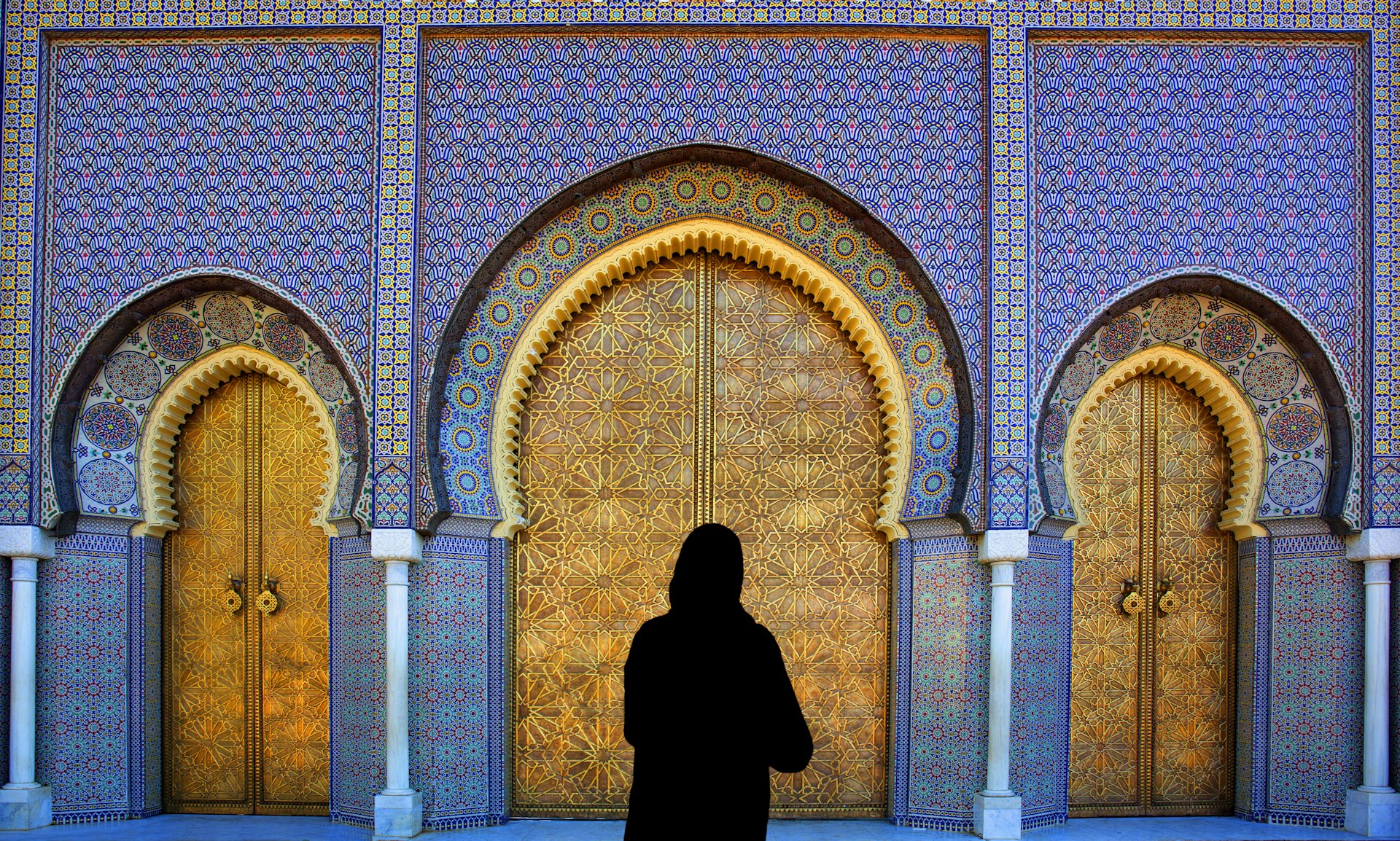
10. The dress code depends on where you are
To visit the Hassan II Mosque and other religious sites, visitors – both men and women – must cover to their shoulders and knees. Dress modestly in cities and towns to avoid unwanted attention. At bars and nightclubs, almost anything goes, but in rural areas, cover up and be respectful of the local customs.
At the beach, you can wear shorts, dresses, vest tops and swimwear including bikinis. Pack comfortable footwear that’s suitable for uneven roads and a scarf to cover your shoulders.
11. Ask before taking photos of people
No matter where you are in the world, it’s best to ask permission before taking someone’s photo. Many people are fine with it, but others aren’t. Some may ask for money. Do not take photos of military or government buildings. Drones are not allowed in Morocco without special permission.
12. Learn how to deal with the hassle
Simply ignore people who offer goods that you do not want. There's no need to be polite to everyone who wants to sell you something. By not reacting, they'll get bored and walk away.
In some places you may receive comments and, at worst, inappropriate behavior, but shouting ‘Police!’ will send these people away. In Marrakesh, there's also a high chance you will alert the undercover tourist police.

13. Can you drink alcohol in Morocco?
Even though alcohol is forbidden by Islamic law, it is widely available and sold in licensed wine shops and international grocery stores. Not all bars and restaurants serve alcohol.
14. Eat with your right hand
Moroccan cuisine such as tagines and grilled fish are traditionally eaten with bread using your right hand. The left hand is considered unclean because it’s typically the hand used when going to the toilet.
15. It’s okay to get lost
Getting lost is part of the joy of exploring Morocco with its unmarked roads, the maze of souq alleys and areas of no cell phone reception. Relax but be aware of your surroundings and ask for help if you need it.
In medinas, it’s helpful to know that if the street sign is a hexagon, it's a dead end. If it’s a square, it’s a through street.
16. Don’t drink the tap water
Morocco’s tap water is not safe to drink. Bring a water bottle with a filter to avoid buying plastic.
17. Bring tissues for public toilets
Some public toilets do not have toilet paper. Unless you are comfortable using water to clean yourself, keep a pack of tissues and some anti-bacterial hand gel or wipes on you.
18. Street cats and dogs are everywhere and part of the community
It’s best not to feed street animals from your table because they might not leave, but you can keep leftovers and feed them elsewhere on the street.
See whether a rescue center is set up in the communities you’re visiting and show your support with donations or by volunteering your time.

